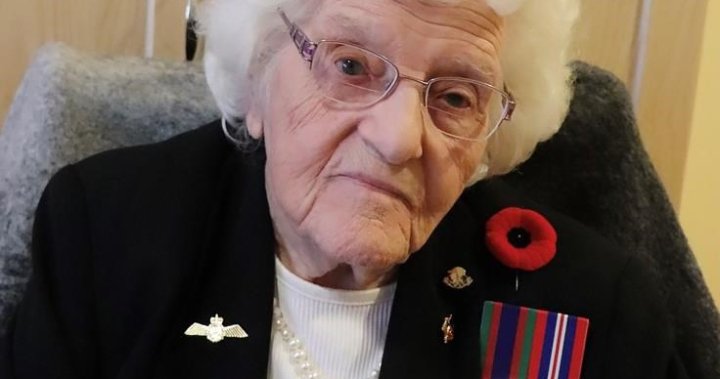
Canadian War Museum oral history project examines war’s aftermath
Global News
The pride in Blanche Bennett's voice was evident as she vividly recounted the day 80 years ago when she volunteered to serve in the Canadian Women's Army Corps.
The pride in Blanche Bennett’s voice was evident as she vividly recounted the day 80 years ago when she volunteered to serve in the Canadian Women’s Army Corps.
Bennett, who turns 100 on Nov. 12, was just 19 when she signed up in 1942 to become one of the nearly 46,000 women who served their country in the military during the Second World War. She said in a recent interview that she immediately went home and informed her surprised mother of her plan.
“She said, ‘Well, you’re not going,’ and I said, ‘Of course I’m going,”’ Bennett recalled. “She said, ‘You can’t, they don’t have women in the army,’ and I said, ‘They do now. They got me.”’
Bennett, a native of Summerside, P.E.I., who now lives in a Charlottetown long-term care home, is one of about 120 veterans and family members who have been interviewed as part of an ongoing oral history project by the Canadian War Museum. The project is taking a unique approach by focusing not on wartime experiences but on what followed.
Michael Petrou, the research project’s lead historian, believes In Their Own Voices will fill a gap in war historiography by highlighting the positive and negative effects on veterans and their families as they moved on with their lives.
“The military service doesn’t end when it officially ends. It continues to influence the lives of veterans afterwards,” said Petrou. “People forget the massive social change that military service and conflict has.”
Bennett said her pride in serving influenced her life following the war, and that is one of the reasons why she participated in the project.
“To be really honest, I think it’s great when people ask me to talk about the war, because for a long time after the war there were an awful lot of people who didn’t even know that women served,” she said.











